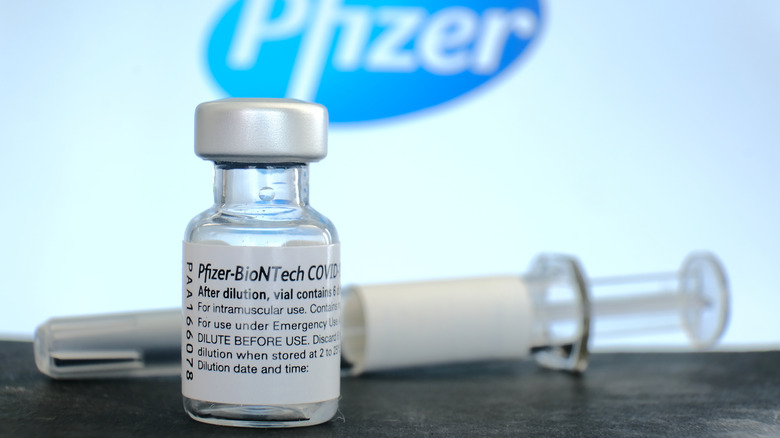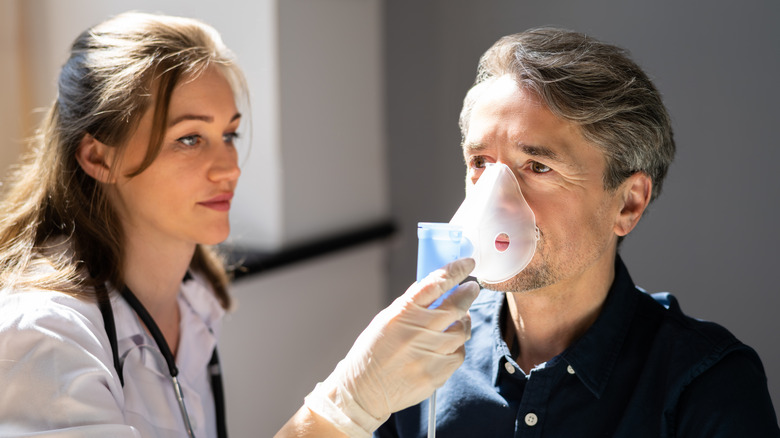Your Next COVID-19 Vaccine Might Look A Lot Different Than You're Used To
The COVID-19 vaccine has been a key player in the reduced number of deaths we've seen from the virus in the past year. While a fourth dose of the vaccine has been speculated, there is no word yet about how often we will need to get COVID-19 shots. According to NBC News, Dr. Anthony Fauci believes that yearly booster shots are not out of the question.
If we do end up requiring yearly COVID-19 booster shots to stay healthy, those vaccines may look different than a traditional injection. According to US News, some experts think that an inhaled vaccine could be the best way to distribute COVID-19 boosters in the future. These kinds of inoculations may deliver better protection at lower doses, which would also make them easier to distribute around the world. "Targeting vaccines to specific anatomic areas of the body where immunity is most important, could provide more durable and extensive protection than injectable vaccines when it comes to respiratory viruses," said Dr. Amesh Adalja, a senior scholar with the Johns Hopkins Center for Health Security, in Baltimore.
What to know about the new inhaled COVID-19 vaccine
A new inhaled COVID-19 vaccine has recently been approved for human trials in Canada (via US News). The vaccine had previously been found to be safe in mice and had produced a "robust immune response." This shot is given to individuals through a nebulizer, which turns the liquid vaccine into an aerosol that is then inhaled through the mouth. Because the vaccine is inhaled, it immediately goes deep into the lungs, which is a part of the body that the coronavirus attacks the most intensely.
"We know that when we stimulate immunity in the lung, the qualities of that immunity are intrinsically different than the types of responses that we stimulate when we inject someone with a vaccine the typical way, in their muscle," said study co-lead author Matthew Miller, an associate professor at McMaster University's Michael G. DeGroote Institute for Infectious Disease Research. While an inhaled vaccine wouldn't offer an advantage for every disease, it shows promise in creating a strong defense against COVID-19 where the body needs it the most.

